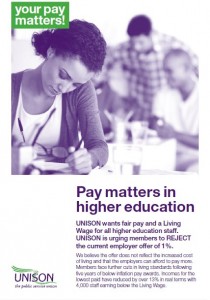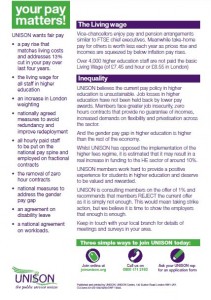The UNISON website has been thoroughly redesigned and offers members more support, information and access to union services: www.unison.org.uk
Personally I found it rather confusing that the site has both a “Sign In” link and a “My UNISON” link, and that the details for one don’t seem to work the other… but hopefully that will be clarified. The idea is that signed-in visitors will have access to “premium information” and can personalise the site, save favourite pages for future reference, and sign up for updates or newsletters. Hopefully the inconsistencies will be sorted out.
If nothing else, the site looks fresher and less cluttered up with tiny text than it used to.
Some of the features of the new site include (and here I am cutting and pasting from the news release so let’s hope there weren’t any last minute changes!!)
- UNISON Knowledge: a sophisticated online library containing 70 key topics identified by UNISON members and reps as being the core information they need access to. From discrimination at work to health and safety legislation; pensions and pay to redundancy and retirement – it will have all of UNISON’s key workplace knowledge in one place, written simply and checked by legal experts.
- Events: local and national UNISON events. You can click a link to add them to your diary, or fill in an online form to register.
- Contacts: a comprehensive branch directory linked directly to our membership records system.
- Campaigns and key issues: active online campaigning on the union’s key national campaigns and service-specific issues, including the facility to sign up to support a campaign and get email updates and online actions such as adding your voice, taking part in a poll, email your MP or sharing your own story.
- Activist tools and resources: we’ve put together a support and guidance section for our activists, covering key areas such as representing members, organising a campaign, negotiating and bargaining and dealing with members’ queries.
- Your own personal My UNISON section which allows you to build up a record of your online interaction with the union. You can check and update your membership details, see a list of any articles you’ve “favourited”; get updates on Knowledge topics you are interested in and manage a list of campaigns or key issues you’ve signed up for.




Recent Comments